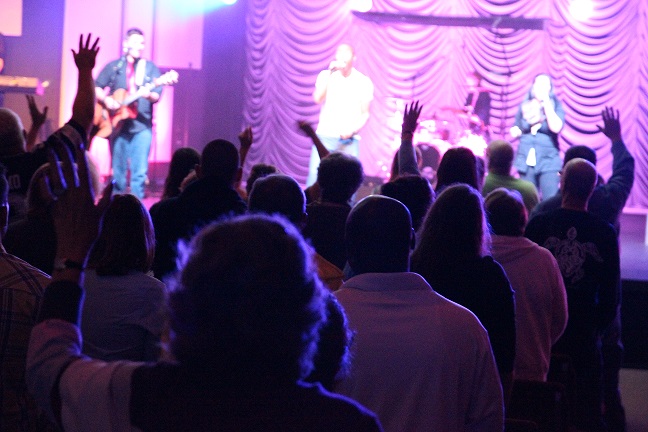
I’ve heard people say, “I don’t like the new music because it’s all about performance. I like the hymns because people can sing along with them,” or “people don’t sing in church any more because of the new music.”
I’ve been a pastor for over 15 years.
I’ve led a small church of 50 people that used hymns and a choir, a medium size church that used blended music, and I currently lead a large church that uses that “new music.”
I’ve come to believe that it’s a myth to associate musical style with congregational participation.
In my experience, congregational participation is actually far more complex than just old versus new or hymns versus modern music.
I’ve found that congregational singing is contingent on at least seven factors.
1. CULTURE
As I’ve traveled internationally, I’ve been in many cultures and I’ve discovered that there are some cultures that love to sing more than others. For example, as a general rule eastern cultures sing with far more zeal than western cultures. For some reason westerners tend to be less comfortable with belting out their voices in a crowd.
2. TEMPERAMENT
I truly believe that our temperament does play a role in whether or not we feel comfortable singing out loud in a crowd. There, I said it without even implicating introverts.
3. SONG FAMILIARITY
Every worship leader knows that the level of crowd participation is directly correlated to how well they know the song. The better they know it the more they’ll show it.
4. CROWD MIX
Our church uses the weekend services as an evangelistic tool to reach the unchurched. That means it’s normal to have a large number of non-believers in attendance. As shocking as this may be, non-believers tend not to sing along with worship songs. However, this is completely normal and expected.
5. MUSICAL CHARACTERISTICS
Ok, I’m not a musician so Ill probably not say this in a way that is musically accurate, but there are some song arrangements that are easy to sing along with and there are some that are hard to sing along with. Whether it is the tempo, range, energy, note pattern (such as octave variance) or key, some songs are better performed than sung along with.
6. STAGE LEADERSHIP
Regardless of musical style (hymns or modern), it matters who is leading the congregation. The worship leader’s personal charisma and stage presence has a direct impact on the audience’s level of participation. A worship leader needs to be likable, believable, relatable, and followable (yes, I made the last 2 words up, but you know exactly what I mean).
7. CONNECTION
There are times in a person’s life when a certain song says exactly what they are feeling. That song makes such an emotional impact on them that they are exponentially more likely to sing along. This also effects the fervor and volume with which they sing. The stronger the emotional connection, the deeper the participation.
Those are some of my thoughts. What are yours?

Scott Creager
Posted at 04:25h, 06 JanuaryI’ll speak to the 8th reason as it pertains to me and others. I suck and I don’t need Simon Cowell to tell me “Don’t quit your day job.” LOL I like to sing solo. So low you can’t hear me.
Mike
Posted at 13:05h, 06 JanuaryJust read a VERY similar article recently
http://blog.ncbaptist.org/renewingworship/2014/06/11/nine-reasons-people-arent-singing-in-worship/.
Good thoughts
Brian Moss
Posted at 13:49h, 06 Januarythanks Mike! I’ll check it out!
Sally Kelly
Posted at 22:24h, 14 MarchI always say to people: “God gave you that voice. Give it back!”